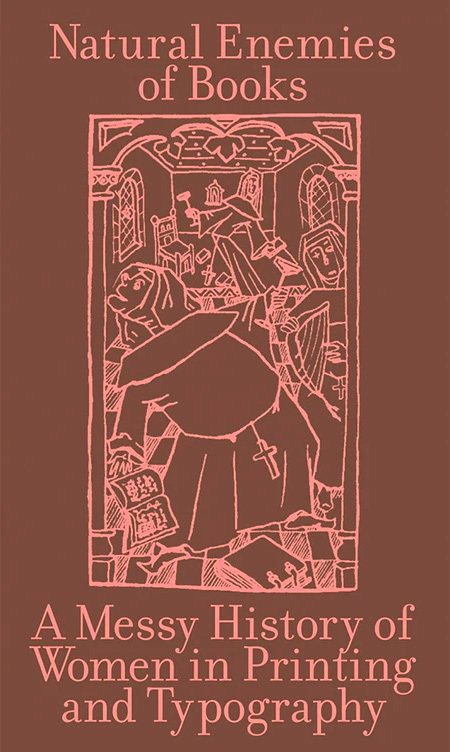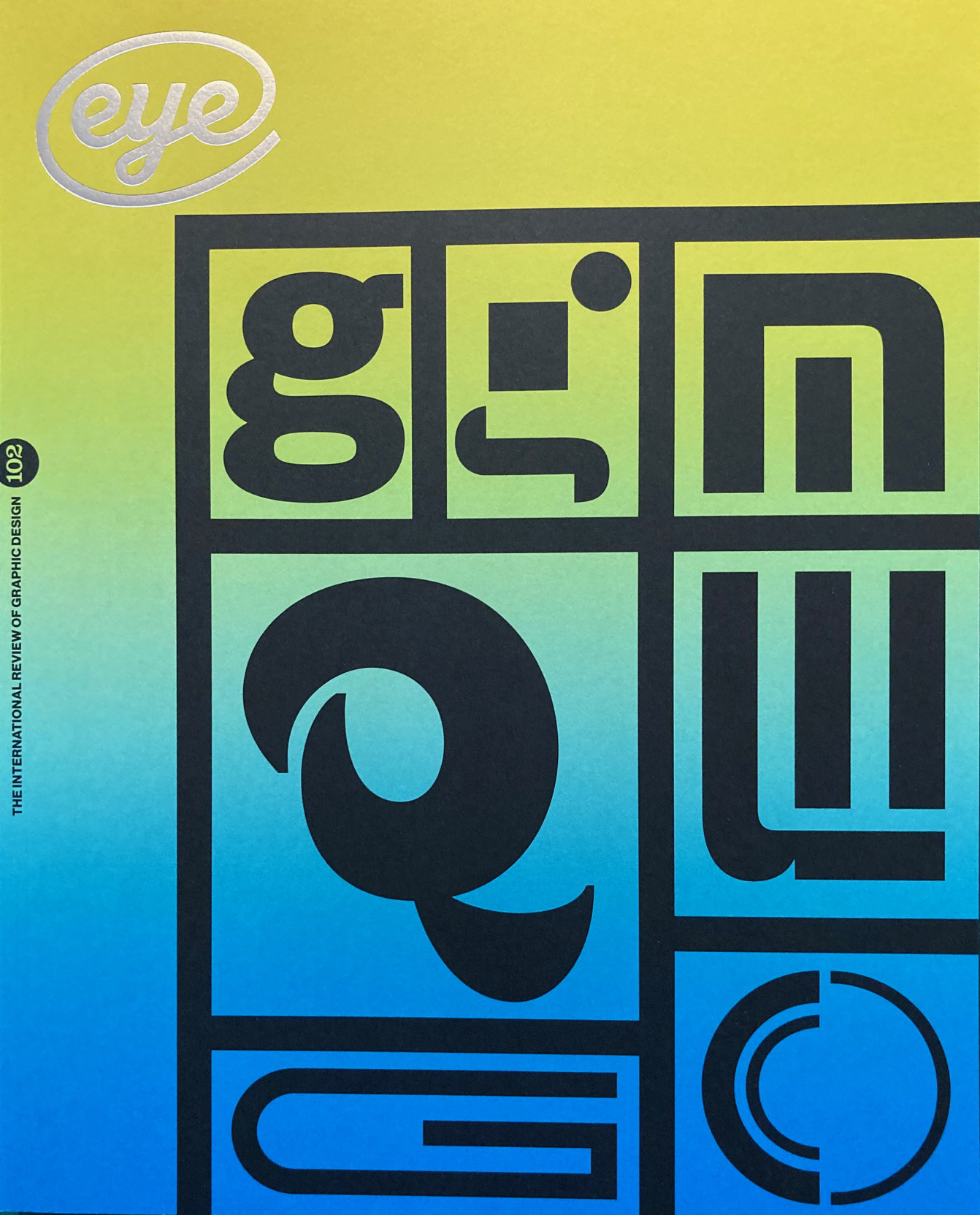Autumn 2021
Feminist pot-luck
Natural Enemies of Books: A Messy History of Women in Printing and Typography
Edited by MMS (Maryam Fanni, Matilda Flodmark, and Sara Kaaman). Designed by Eller med a. Occasional Papers, £12.50, €14.50
If you can get your hands on an original copy of Bookmaking on the Distaff Side, consider yourself lucky – it was printed in an edition of just 100 copies, now scattered across the globe. Written, typeset and printed by a collective of accomplished professional women in 1937, the case-bound book (with custom paste papers made by the lyrically named Delight Rushmore) consists of separate signatures, each supplied by individual contributors, with multiple inks and papers of varied hues, weights and finishes. I was fortunate enough to be able to examine the book recently, at Wellesley College Library in Massachusetts, and enjoyed its tart-tongued humour, interspersed with more scholarly essays about the contributions made by women to printing and typesetting in Colonial America and Europe.
Contributors to Distaff included Jane Grabhorn, who was married to one of the founders of the well known Grabhorn Press in San Francisco but had her own freewheeling imprint, Jumbo Press; Edna Beilenson, a partner at Peter Pauper Press; and Evelyn Harter, who worked in design and production at Random House. The editors made one exception to its women-contributors-only rule: Frederic Goudy supplied a moving testimonial to his late wife Bertha, who was
a highly skilled typesetter (and Goudy’s muse) at the Village Press. The authors approached Distaff with a collectivist spirit – the book’s introduction was attributed to ‘The Committee’ – that was deliberately at odds with the individualism of the (largely male) industry at the time.
It is fitting then that a recent book responding to the groundbreaking 1937 publication was likewise a collectivist effort. Natural Enemies of Books: A Messy History of Women in Printing and Typography, was produced by the Swedish graphic design collective MMS (Maryam Fanni, Matilda Flodmark, and Sara Kaaman) and playfully designed by the trio Eller med a. The book is a hodgepodge (or what contributor Kathleen Walkup calls a ‘pot-luck’), with selected facsimiles from Distaff, historical essays, testimonies from women who worked in the printing trades, and an excellent overview by Jess Baines on small feminist presses in Britain. The Swedish economic historian Ulla Wikander contributes an enlightening account of the role of women in the union movement, showing how their efforts to organise helped to protect jobs and equal pay in printing and publishing, particularly during the digital revolution of the 1970s and 1980s.
The publication is inclusive, giving space to scholars as well as to the voices of workers – the editors value making a living as highly as fine typesetting and printing. They set out to bring to this book ‘an identity that is built on collectivity, community, and an understanding of material conditions, rather than on individuality and success stories’. It shows that women have always played a part in the history of printing and typesetting – whether as printers’ widows, unsung partners of more celebrated men, or revolutionaries who used small presses in the service of large movements.
‘Messy history,’ writes design historian Martha Scotford, ‘seeks to discover, study and include the variety of alternative approaches and activities that are often part of women designers’ professional lives.’ Natural Enemies of Books may be messy, but it is also a rich and valuable sampler of feminist design history.
Lisa Rosowsky, professor of communication design, MassArt, Boston, US
First published in Eye no. 102 vol. 26, 202
Eye is the world’s most beautiful and collectable graphic design journal, published for professional designers, students and anyone interested in critical, informed writing about graphic design and visual culture. It is available from all good design bookshops and online at the Eye shop, where you can buy subscriptions and single issues.

